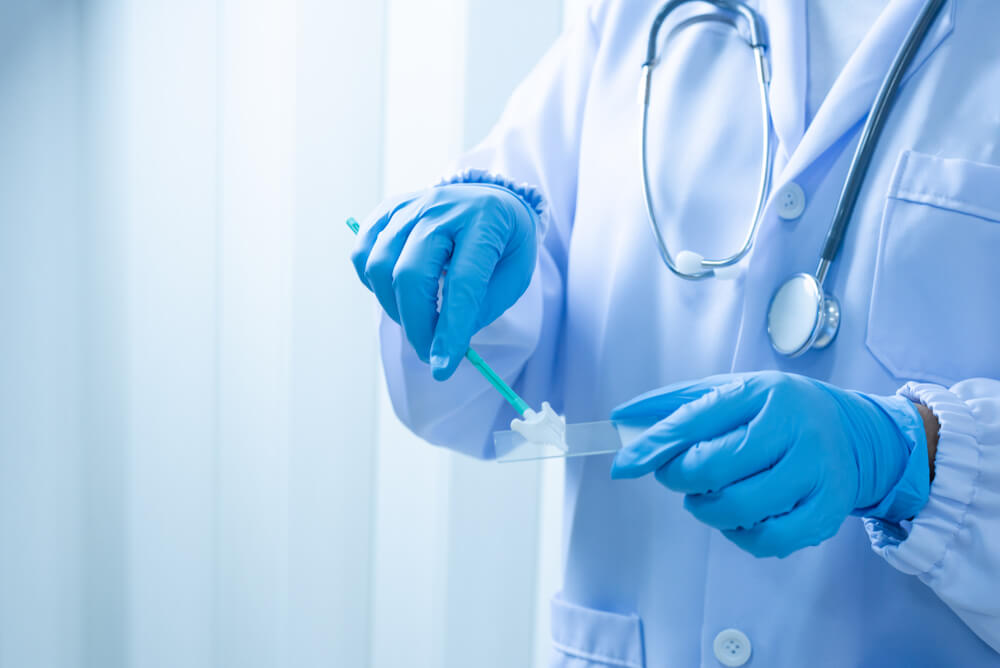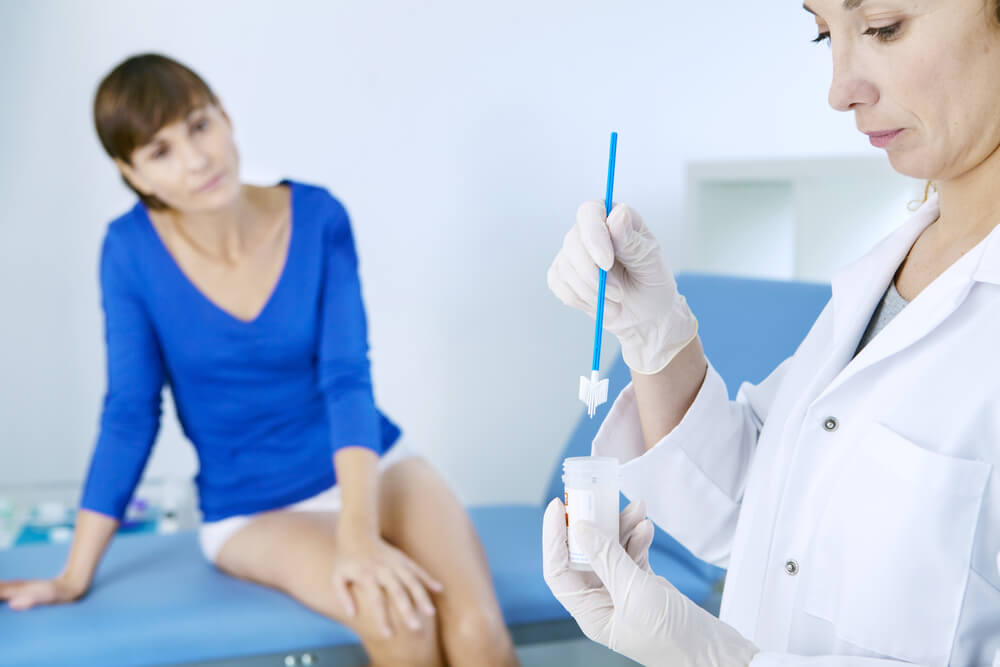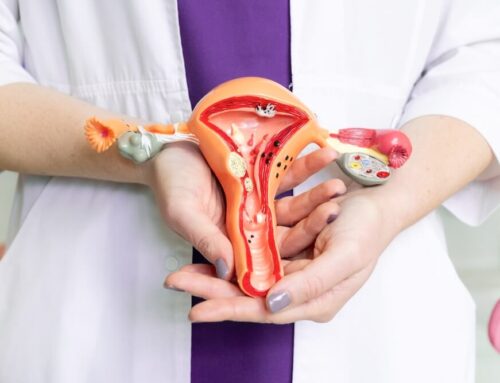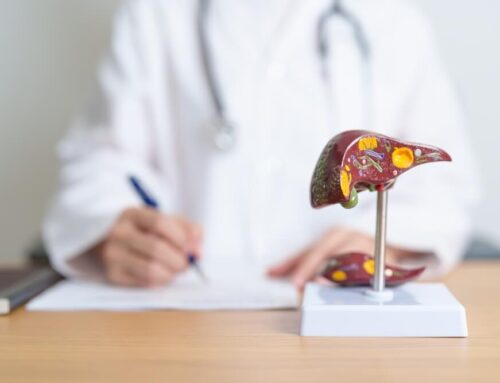Waiting for your results after a Pap smear test can be nerve-wracking. Once the results come and they say it’s an abnormal Pap smear, it can sound scary, and it’s normal for you to be worried. An abnormal test result indicates that something isn’t good, but it doesn’t say much about it.
This examination is used to detect cervical cancer, so a natural reaction is to think that your results indicate the worst-case scenario. But it doesn’t have to be that, and in most cases, it isn’t.
We’ll talk more about do’s and don’ts before a pap smear, what causes abnormal Pap and what you should do next.
What Is a Pap Smear Test?
An examination like this is used to detect cervical cancer, and it’s done by swabbing your cervix to collect samples. Those samples are further examined to determine if any changes in cervical cells can be precancerous.
It’s recommended to do this examination once every three years if you are between 21 and 29, or once every five years if you are between 30 and 65, alongside an HPV test. There are some exceptions based on your personal health history and whether you previously had an abnormal Pap smear.
How to Prepare for a Pap Smear

If you are reading this even before going to your exam, we will talk a bit about how you should prepare for it, can you get a Pap smear on your period, and what are do’s and don’ts before a Pap smear. We will also answer common questions like does a Pap smear hurt, can you get cramps after Pap smear, and what bleeding after Pap smear indicates.
Do’s and Don’ts Before a Pap Smear
You should avoid intercourse for at least two days before having a Pap smear, douching, or using any vaginal creams, jellies, or any vaginal medicine.
Can you get a Pap smear on your period is a common question. And technically, the answer is yes, but you should avoid scheduling an appointment around the time of your cycle.
Does a Pap Smear Hurt
It’s normal to be interested and to ask does a Pap smear hurt. Usually, it shouldn’t hurt, but it also isn’t comfortable. You can feel slight discomfort for a short period.
What Does Bleeding After Pap Smear Mean
Many can notice a bit of light bleeding or spotting after having a Pap smear. It can continue for a couple of days and usually stops by itself. It happens because your blood vessels can be irritated during the examination, but bleeding after a Pap smear in most cases isn’t something alarming.
What Do Cramps After Pap Smear Mean
Cramps after Pap smear are also expected, and many experience them after the exam. This kind of discomfort happens because this area of the body is susceptible. However, it is also nothing to be afraid of; you can always soothe yourself with a warm tea and a heating pouch.
What Does an Abnormal Pap Smear Mean?
Even if your results came in with an abnormal Pap smear, it doesn’t have to imply that there are cancerous cells in your cervix. We know that it’s not easy to stay calm, but there’s nothing to worry about in most cases.
The reason why you might get an abnormal result is because of an HPV virus.
Yes, we know what you are thinking, and you are right. HPV virus is one of the most common sexually transmitted diseases in the U.S. because you can easily spread it through skin-to-skin contact. The HPV virus can cause some types of cancers, like cervical cancer. But there are various HPV viruses, more than 100, and not all of them cause cancers.
An HPV infection doesn’t have to harm your health, and in most cases with younger people, HPV can fade away from the body in the period of six months to two years.
Due to that, you shouldn’t be afraid, but you should consult with your doctor. You should always ask for more information about what causes abnormal Pap and what you should do next because a follow-up examination is necessary.
Are There More Things That Can Cause an Abnormal Pap Smear?
The most common cause is the HPV virus, but other things can cause an abnormal Pap smear. And you can know the potential cause by the type of the result you get.
Five types of results that you can get:
- ASCUS (atypical squamous cells of undetermined significance)
- LSIL (low-grade squamous intraepithelial lesion)
- HSIL (high-grade squamous intraepithelial lesion)
- ASC-H (atypical squamous cells)
- AGC (atypical glandular cells)
ASCUS indicates the presence of squamous cells that slightly changed cells due to an HPV infection, yeast infection, cysts, or benign polyps.
LSIL indicates that cells are affected by a current HPV infection.
HSIL indicates that severe changes are happening with the cells, and often it’s referred to them as precancerous cells.
ASC-H indicates changes that can later lead to HSIL.
AGC result indicates a change in cells inside the cervix and the uterus, signaling potential cancer.
What Happens Next?
Depending on the results you got, the follow-up will be different.
For an ASCUS result, a doctor can suggest a repeat Pap test in the following year if you are between 21 and 29.
If you are older than 29, you should do an HPV test, and if it is positive, they can suggest a colposcopy. If the test is negative, your gynecologist may recommend coming for another Pap and HPV test in three years. During colposcopy, they may take a tissue sample for biopsy and further test it for cancer if they think it’s necessary.
For an LSIL result, the doctor may suggest colposcopy and an HPV test if you are older than 24. And if you are younger, the doctor can recommend coming for another Pap in a year.
For an HSIL or ASC-H result, your doctor will recommend colposcopy no matter how old you are.
And for an AGC test result, the follow-up tests are slightly different because the cells with changes can be found in the cervix and the uterus. The doctor can recommend a colposcopy and sampling tissue from the cervical canal and the uterus.
What if the Final Results Come With Precancer or Cancer?

If further tests find precancer with good care and surveillance, it can be prevented from becoming cancerous and invasive. But it’s of utmost importance to do regular follow-ups, to consult and listen to your doctor.
If you have cervical cancer, the treatment should be individualized based on your specific case. The treatment can include chemotherapy, radiation, cryotherapy, hysterectomy, and some types of surgery. Many factors affect further treatment.
The prognosis can be good if cervical cancer is detected early. If it’s found early while it’s still localized to the cervix, and uterus the relative survival rate is 92%. Because of that, it is vital to schedule regular visits with your gynecologist.
We Are Here for You
Our primary goal here at Trogolo Obstetrics and Gynecology is to help women feel safe and stay healthy. Every day at the clinic, we perform numerous Pap smear tests because it’s one of the best ways to discover cervical cancer early.
If you’ve got an abnormal test result and don’t know what you should do next, feel free to contact us to advise you what the best next step is.





